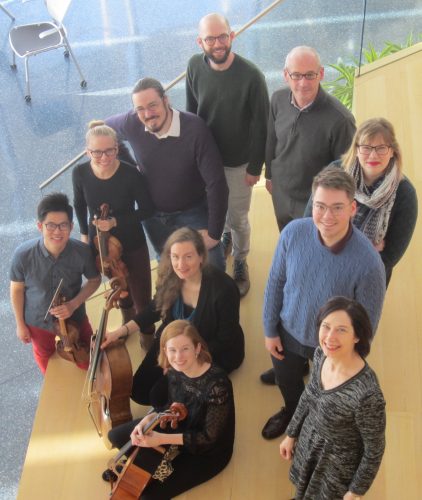
“A musician no longer arrives in France without a sonata or a cantata in his pocket.“
Thus the Mercure of November 1713 reported on the Italianate vogue that was sweeping away Paris at the beginning of the 18th century. We are in the late reign of Louis XIV, whose repeated absences during Versailles’ entertainments had prompted a migration of the courtiers out of the palace. As Georgia Cowart observes, freed from the adulatory disguise they had to wear in front of the king, a transformation in the type of entertainment they were consuming, as well as their taste began to take place. The infiltration of Italian gusto into the French musical scene, if welcomed by ardent defenders and patrons, was not totally devoid of chauvinistic criticism. The solution? Imprint the French gracefulness in Italian forms.
Our Festival program will present two of these cosmopolitan works: “La Piémontoise” from François Couperin’s monumental collection Les Nations; and “Pyrame et Thisbé,” a cantata by Michel Pignolet de Montéclair that, according to its composer, is both epic and dramatic.
- “La Piemontoise” from Les Nations – François Couperin (1668-1733)
- Sonade:
- Gravement – vivement
- Gravement – vivement, et marqué
- Air gracieusement – Second air
- Gravement et marqué – légérement
- Allemande
- Courante
- Sarabande
- Rondeau
- Gigue
- Sonade:
- Cantata, “Pyrame et Thisbé” – Michel Pignolet de Montéclair (1667-1737)
Handel’s Acis and Galatea (complete, in 2 parts)

